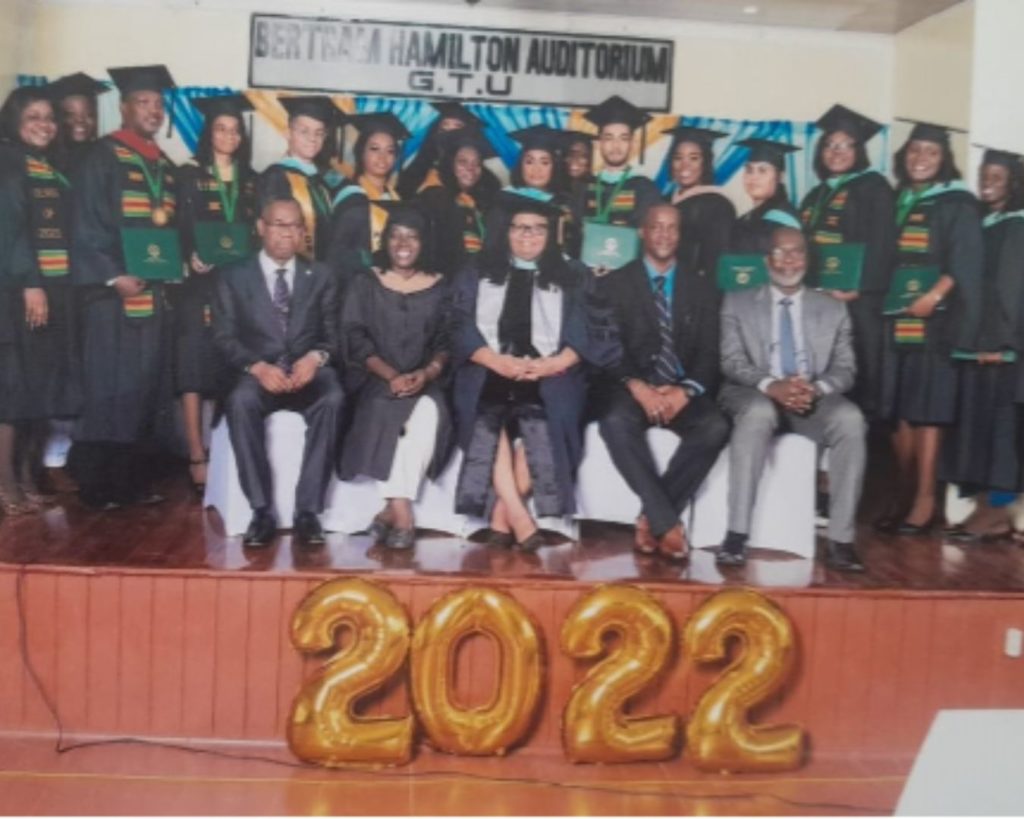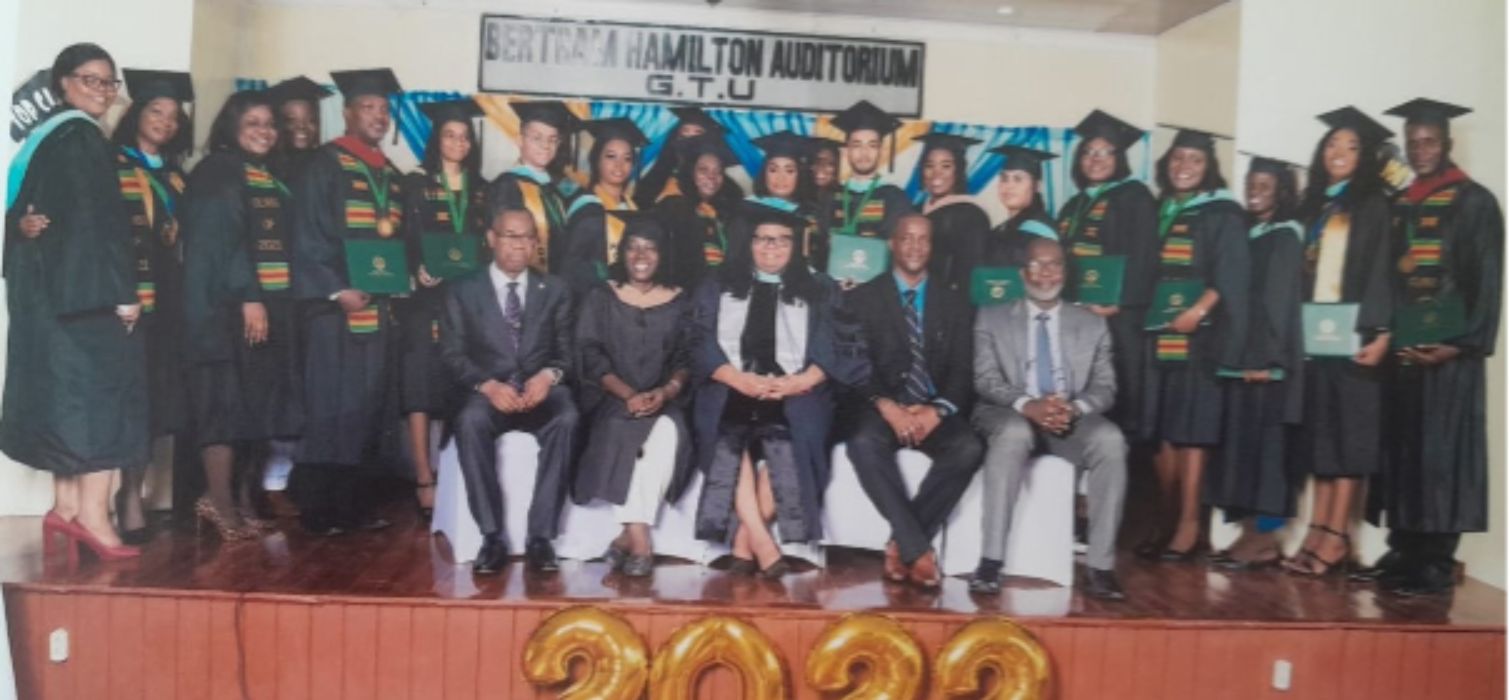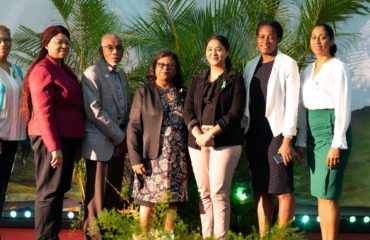By Hayden McKenna
For all of our institutional history to date, Guyana has consistently been the national homeland for by far the largest number of our international students. This unbroken record has been aided by the fact that Guyana’s population size is second only to that of Trinidad and Tobago among the nations that make up University of the Southern Caribbean’s historical and geopolitical constituency. In strictly Adventist terms, the Guyana Conference (since 2004 when the South Caribbean Conference was re-organized and the Tobago Mission was established), has had the largest membership of any of the constituent fields of the Caribbean Union Conference of Seventh-day Adventists (CARU). Because of these two factors, it should not be surprising that Guyanese students have always had a large footprint on East Caribbean Training School (ECTS), Caribbean Training College (CTC), Caribbean Union College (CUC) and now the University of the Southern Caribbean (USC). This reality belies the fact that maintaining that proportional significance in our student population for nine and a half decades has not always been easy.
In 1976, the education system of the Co-operative Republic of Guyana was nationalized as part of an ambitious pro-socialist programme to de-colonize the Republic’s education system, grow its capacity, align it more perfectly with national needs and make it more egalitarian. Consequently, denominational schools in Guyana were absorbed into the state-run education system and the Adventist Church in Guyana was no longer able to operate its schools.
When, in the 1980s and 1990s, Guyana faced a debt-crisis and crippling economic hardships, Guyanese Adventists – and many non-Adventists too, continued to make the sacrifice to attend what was then Caribbean Union College, in numbers that attested to their courage and faith in the transformative Christian education that CUC offered. Guyanese students of CUC from this era are among some of the most accomplished and loyal of our alumni. Absolutely! While the temptation to name many names is great, it must be generally resisted with a few irresistible, ‘ex-officio’ exceptions, namely, our current University President, Dr. Colwick Mervyn Wilson, our Vice-President of Administration, Advancement and Planning, Dr. Barbara Grace Reynolds and our Vice-President of Student Services and Enrolment Management, Pastor Onesi Kelita La Fleur. These three, share at least three things in common. They are all alumni of our dear old CUC. They all worked on campus as students to help fund their education. They all identify with Guyana as their natal homeland.
When the University of the Southern Caribbean began to expand its physical operations outside of Maracas Valley and beyond Trinidad and Tobago, Georgetown (the capital of the Co-operative Republic of Guyana), seemed pre-destined to be one of the first locations for a USC satellite site. So, in January 2006, USC came to Guyana. The then USC President, Dr. Trevor George Gardner and then USC Director of Distance Education, Dr. Phyllis Andrews, saw to it that USC planted a stake in the land of many waters.
The first location of USC’s satellite site in Georgetown was on Laluni Street, Queenstown, in the building of the Josel Educational Institute – a private primary and secondary school operated by Ms. Elizabeth Gonsalves, a Seventh-day Adventist friend of USC and an ardent supporter and advocate for Christian education in Guyana. USC classes were held in the afternoons after the end of the school-day of the Josel Educational Institute. USC-Guyana began with sixteen students enrolled in three baccalaureate programmes in the areas of Elementary Education, Psychology and Behavioural Sciences. The first Site Co-ordinator was Dr. Alexander Isaacs. Over the seventeen years of its existence, USC-Guyana has grown in its enrolment, its programme offerings and its value to the Adventist Church in Guyana and the broader Guyanese society.
The growing needs of USC-Guyana necessitated a relocation to another building owned by Ms. Gonsalves on nearby Anira Street. This relocation happened in 2010. At the Anira Street location, which is in close proximity to the head office of the Guyana Conference of Seventh-day Adventists, USC-Guyana is the sole tenant and as such it now had the freedom to extend its operating hours. Owing to the needs of students, classes remain largely concentrated in the afternoon to evening period but with the advantage of longer hours of administrative support. In 2010 also, the current Site Co-ordinator, Mrs. Mignon Maynard-Sancho, succeeded Dr. Alexander Isaacs, who was called to serve at the Davis Memorial Hospital and eventually as a Director at CARU.
In 2021, the Government of the Co-operative Republic of Guyana launched the Guyana Online Academy of Learning (GOAL). The stated intention of this initiative is to grant 20,000 scholarships to Guyanese in tertiary academic and vocational education disciplines considered relevant to the current and future developmental needs of the nation by 2025. These scholarships are made available at the certificate, diploma, bachelor’s, postgraduate certificate, postgraduate diploma, master’s and doctoral levels. The GOAL has partnered with eight universities and higher education providers from various parts of the world to deliver the designated programmes of study. The University of the Southern Caribbean is among the selected group of universities participating in the GOAL scholarship initiative. USC’s participation centres on six undergraduate and four postgraduate degree programmes, namely: the BS in Nursing, the BS in Elementary Education, the BS in Early Childhood Education, the BS in Educational Studies (Special Education) the BS in Criminology and Criminal Justice and the BS in Nutrition and Dietetics. At the postgraduate level, current options include the MA in Educational Administration and Leadership, the MA in Educational Psychology, the MS in Counselling Psychology and the MS in National Security and Intelligence Studies.
In addition to the GOAL scholarship initiative, through a special arrangement with the Ministry of Home Affairs, the BS in Criminology and Criminal Justice and the MS in National Security and Intelligence Studies have also attracted students from the Guyana Prison Service (GPS) as part of its drive to strengthen its human resources in the area of corrections and reduce recidivism rates. At present, eight members of the GPS are enrolled in these USC programmes, six in the BS in Criminology and Criminal Justice programme and two in the MS in National Security and Intelligence Studies, the latter including an officer in the top brass of the service.
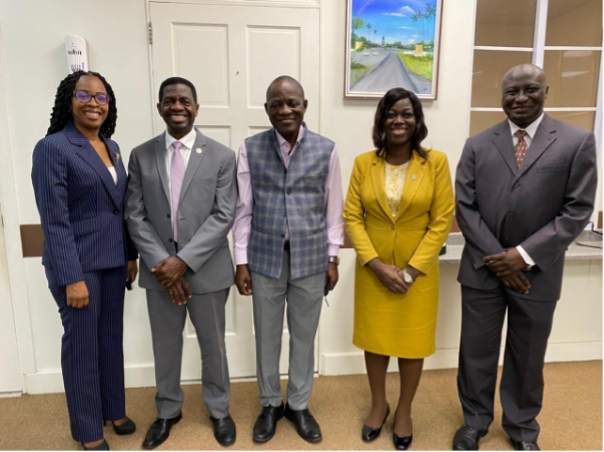
Given the deep and wide geographical expanse that is Guyana, – the capacity to deliver curricula remotely is inseparable from the policy framework that governs the partnership with the Guyana Government. The aim is that students in all ten regions of Guyana must not have access to the benefits of scholarships abridged by the transportation and other hardships that affect the communities that are most remote from Georgetown. That the GOAL scholarship initiative was first rolled out during the height of the COVID-19 pandemic, may have further strengthened its fidelity to remote instructional delivery as is embedded in its very name.
USC’s participation in the GOAL scholarship initiative has grown the university’s footprint in the higher education sector in Guyana. Never before, in the history of the mutually valuable relationship between USC (ECTS, CTC, CUC) and the people of Guyana, has there been more Guyanese students enrolled in the USC system than there are today.
Although the GOAL scholarship initiative privileges distance education pedagogy as its primary mode of delivery, the fact that USC-Guyana physically exists in Georgetown, has proven an invaluable support system to scholarship recipients. According to Mrs. Maynard-Sancho, while the GOAL scholarships have not really increased the number of students enrolled at USC-Guyana, it has increased the volume of traffic at the site, as many GOAL scholars call on the brick-and-mortar site for a range of services including counselling, academic advisement, computer lab facilities and other kinds of hands-on support. At the start of this academic year, for instance, USC Provost Dr. Len Archer, Pastor Onesi La Fleur, Vice President for Student Services and Enrolment Management, and Dr. Genevieve Boucaud, Dean of the School of Distance Education visited USC-Guyana for a face-to-face orientation exercise for USC students, including GOAL scholars.
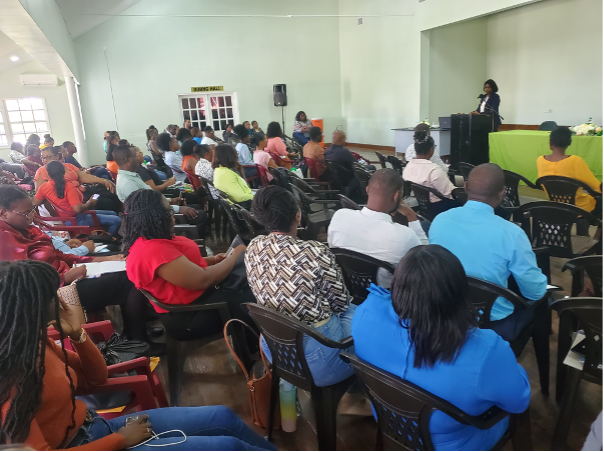
When asked to share her dreams for the future of USC-Guyana, there was an audible lift in the vocal enthusiasm of Mrs. Maynard-Sancho. We were perhaps broaching a subject for which she has a great deal of affection. Mrs. Maynard-Sancho shared that the dream is to have “a full-fledged (USC) university campus in Guyana”. She mentioned that a proposal was developed to use a 700-acre parcel of land the Guyana Conference owns on the Linden Highway. The Government of the Co-operative Republic of Guyana has also been approached to assist with an endowment of land on which a full campus can be constructed. The idea of a USC Campus specializing in medical and health sciences with a world-renowned Adventist university as a partner is one that the Ministry of Health in Guyana would like to see actualized “last year” she said. USC-Guyana is not without lofty ambitions for the future, located as it is, in the nation in the western hemisphere with the greatest prospects for rapid development and growth during the ensuing decade.
The dynamo behind Guyana’s very bright growth prospects was the discovery of large reserves of crude petroleum in commercial quantities in Guyana’s offshore bank in 2015. This discovery is the largest in the world in the last ten years. Extraction began in 2019. The GOAL scholarship initiative is one of several public-policy programmes established by the Government of the Co-operative Republic of Guyana to upskill the nation’s indigenous human capital in keeping with its national developmental goals – no pun intended. The Co-ordinator of USC- Guyana Mrs. Mignon Maynard-Sancho is laser-focused on finding more meaningful and sustainable ways for USC-Guyana to improve the relevance of its offerings to the emerging realities of Guyana’s new energy-driven economy. USC-Guyana and by extension the broader University of the Southern Caribbean is steadfastly committed to working with the governments and other stakeholders of the region to continue the pursuit of the improvement of Caribbean civilization and the contributions our region makes to the world.
The GOAL scholarship initiative is one of several public-policy programmes established by the Government of the Co-operative Republic of Guyana to upskill the nation’s indigenous human capital in keeping with its national developmental goals – no pun intended. The Co-ordinator of USC- Guyana Mrs. Mignon Maynard-Sancho is laser-focused on finding more meaningful and sustainable ways for USC-Guyana to improve the relevance of its offerings to the emerging realities of Guyana’s new energy-driven economy. USC-Guyana, and by extension the broader University of the Southern Caribbean, is steadfastly committed to working with governments and other stakeholders of the region to continue the pursuit of the improvement of Caribbean civilization and the contributions our region makes to the world.
USC’s historical connection with empowering the dreams of so many of the people of Guyana and the success of its Guyanese alumni at home and abroad as patriotic nation builders and moreover as extraordinary servants of God to humanity, adds an invaluable credibility to our university’s profile as a partner in the present and future progress of the great Co-operative Republic. As Guyana progresses, so too will USC!
